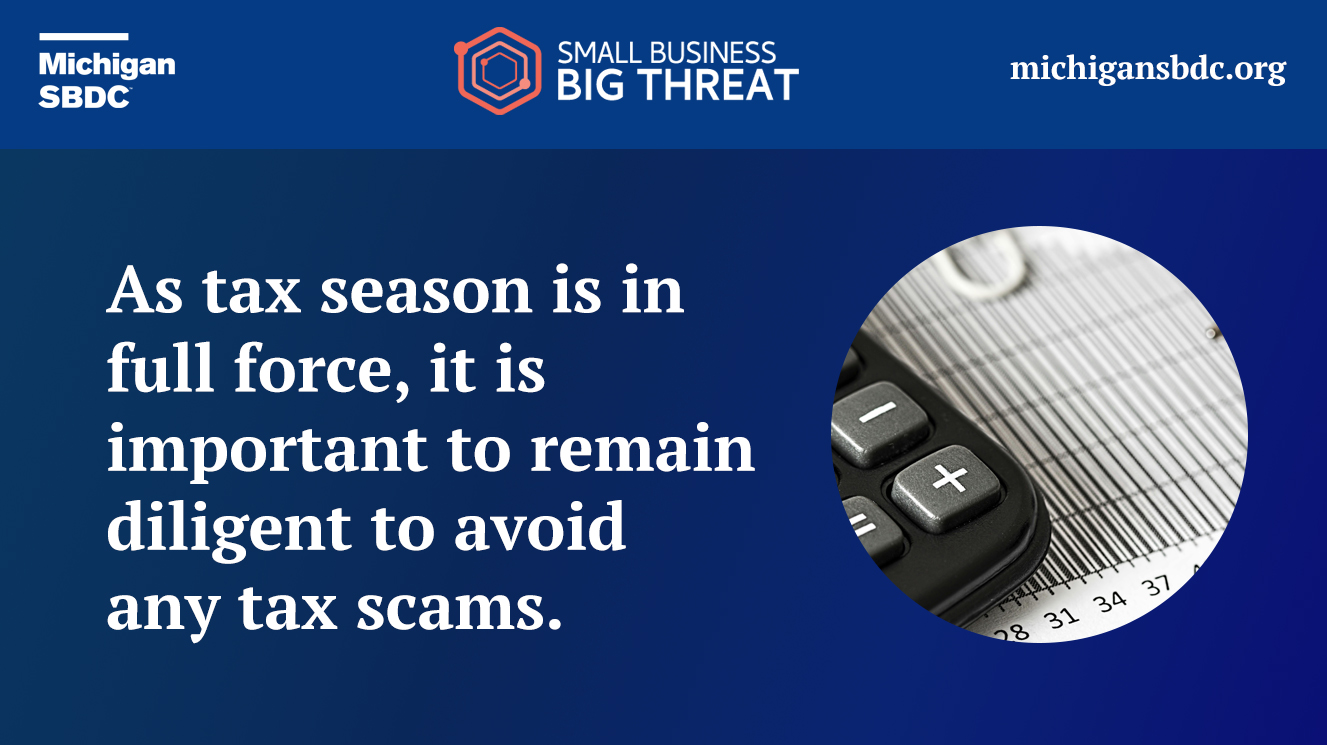 As tax season is in full force and we get closer to the finishing line in April, it is important to remain diligent to avoid any tax scams. Whether you or your small business still needs to file or if you are a tax preparation business, you will continue to be targeted. Let’s learn how we can better protect ourselves and our businesses during this hectic tax time!
As tax season is in full force and we get closer to the finishing line in April, it is important to remain diligent to avoid any tax scams. Whether you or your small business still needs to file or if you are a tax preparation business, you will continue to be targeted. Let’s learn how we can better protect ourselves and our businesses during this hectic tax time!
Still need to file
Like many Americans and US based businesses, you may still need to file your taxes. As we get closer and closer to the deadline, a sense of urgency may kick in. This is what the scammers and phishers are hoping for. They want you to feel pressured. This way you may make a mistake and not catch on to their attempt to scam you.
Some of the methods these cybercriminal use are targeted phone calls, sending letters through the mail, and sending phishing emails. They usually pretend to be from the IRS or that they are a tax preparer. The IRS in the past has warned against a variety of tax scams targeting the taxpayer:
- Scam mailing
- Charity frauds
- Tax filing scams
- Ghost tax returns
- IRS impersonation calls
Busy season
For others, this is the busy season with early mornings and late evenings. You have clients to help and tax forms to complete. You have different concerns. WIth the jam packed schedules, cybercriminals are really hoping to sneak a phishing email through to you. These phishing emails may contain malicious links to fake login pages, malicious file attachments full of malware, or contain neither but hoping you reply to their request. This request can be to divulge information, generally a social security number, financial account number, or other confidential information. They may even ask you to update the direct deposit information for any refunds.
For you, it is important to follow your policies and procedures. Verify any of the requests an email or phone call might ask. According to the IRS their objective is,
“to steal your clients’ data so they can file fraudulent tax returns that better impersonate their victims and are harder to detect. Their tactics: using email, the phone or other means to trick you into giving up computer passwords, e-Services passwords, to steal your EFINs or CAF numbers or even to take remote control of your entire computer system.”
So as tax season stays in full force for a little bit longer, stay diligent, stay ready, be prepared!
Subscribe to our monthly email newsletter to keep your small business up-to-date on all the latest cybersecurity news! For more information on protecting your small business from cyberattacks and other cybersecurity topics check out Small Business, Big Threat!